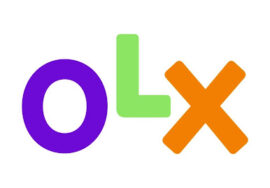
8 Surprising Advantages of Web Applications for Improving Customer Experience
In today’s digital landscape, web applications are increasingly becoming a cornerstone for businesses aiming to enhance their customer experience. Unlike traditional websites, web applications provide interactive and dynamic user experiences, allowing for deeper engagement and functionality. Here are eight surprising advantages of using web applications that can significantly improve customer experience and satisfaction.
-
Real-Time Customization and Personalization
Web applications can dynamically adjust content and features based on user behavior and preferences. This level of personalization ensures that each user has a unique and tailored experience, enhancing satisfaction and engagement. Whether it’s customizing a dashboard or offering personalized product recommendations, real-time customization makes users feel valued and understood.
-
Improved User Engagement
Interactive features such as live chat support, real-time updates, and interactive tools keep users engaged and invested in the platform. Web applications facilitate a more immersive experience than static websites, encouraging users to spend more time exploring and interacting with your content, which can lead to increased customer loyalty and sales.
-
Seamless Updates and Maintenance
One of the key advantages of web applications is that updates can be made on the server-side, meaning that users always have access to the latest version without needing to manually update the application. This seamless update process eliminates potential frustrations from outdated features or bugs, ensuring a smooth and continuous user experience.
-
Consistent Experience Across Devices
Web applications are designed to provide a consistent user experience across all devices, whether accessed from a desktop, tablet, or smartphone. This consistency ensures that customers can switch between devices without disruption, improving their overall experience and satisfaction with your platform.
-
Scalability and Accessibility
Web applications are hosted on servers, which makes it easier to scale resources up or down based on user demand. This scalability ensures that your application can handle high traffic periods without compromising on speed or availability. Moreover, being internet-based, web applications are accessible from anywhere, which is ideal for users on the go.
-
Integration Capabilities
Web applications can easily integrate with other systems and applications, which can enhance functionality and streamline processes. For example, integrating with CRM systems can provide staff with valuable insights into customer behaviors and preferences, enabling more effective and personalized interactions.
-
Enhanced Security Features
Security is paramount in digital interactions, and web applications can offer robust security features to protect user data. Advanced authentication mechanisms, data encryption, and secure server connections are just a few ways that web applications can enhance security, building trust among users.
-
Cost-Effective Development and Deployment
Developing and deploying web applications can be more cost-effective than traditional software applications. Since they run within a web browser, there is no need for extensive customization across different operating systems, which reduces both development time and costs.
A Tool for Competitive Advantage
The surprising advantages of web applications—from personalized experiences and seamless updates to enhanced security and cost-effectiveness—make them a powerful tool for businesses looking to improve customer experience. By leveraging the unique capabilities of web applications, companies can not only meet but exceed customer expectations, setting themselves apart in a competitive market.








